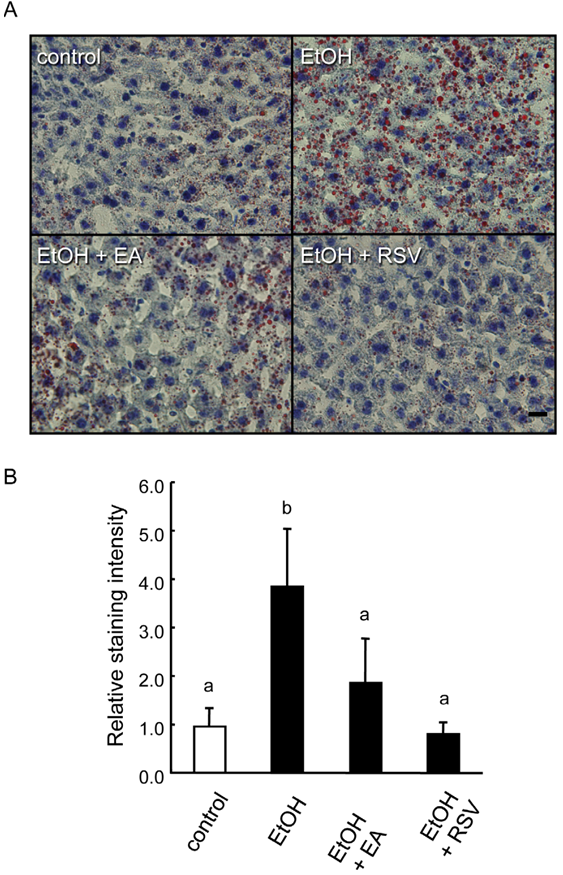Research Highlights
Vol.2, December 2014
Alcoholic drinks contain chemicals that could help suppress alcohol-induced stress
By identifying the roles and regulatory protein for genes upregulated by polyphenols in wines and spirits, recent research suggests a potential approach for preventing alcohol-induced stress.
“Chronic alcohol intake inflicts progressive damage on energy metabolism, while it causes significant change in hepatic gene expression profile,” explain Takumi Misaka, Akihito Yasuoka and colleagues from the University of Tokyo and Kanagawa Academy of Science and Technology in their latest report. They compared the effects on gene regulation of alcohol administration with and without polyphenols to better understand these processes and identified a possible approach for suppressing alcohol-induced stress.
The researchers fed mice one of four liquid diets: with added ethanol alone; with added ethanol and ellagic acid (EA, a polyphenol found in wood in aged whisky); with added ethanol and trans-resveratrol (RSV, a polyphenol derived from grape peel in wine); and with added water as a control. After five weeks the mice were sacrificed for study, revealing that while administration of ethanol alone led to four times the level of accumulated fatty acid in the liver, administration of EA or RSV with the ethanol reduced this to around the level of the control. Gene expression analysis also highlighted differences in the genes upregulated under administration of alcohol with or without polyphenols that suggest polyphenols may facilitate healthier metabolic processes.
The researchers then investigated the role of a nuclear receptor – constitutive androstane receptor (CAR) – known to respond to plant chemicals like EA and RSV. Gene expression analysis of CAR-deficient mice showed they were not receptive to the ameliorative effects of polyphenols administered with ethanol, suggesting CAR mediates these regulating effects. They conclude their report saying, “Our study provides the molecular basis for the prevention of AFL by polyphenols, which are commonly consumed food factors.”
Publication and Affiliation
Ruiqing Yao1, Akihito Yasuoka2,3*, Asuka Kamei3, Shota Ushiama1, Yoshinori Kitagawa4,
Tomohiro Rogi4, Hiroshi Shibata4, Keiko Abe1,3, Takumi Misaka1* Nuclear Receptor-Mediated Alleviation of Alcoholic Fatty Liver by Polyphenols Contained in Alcoholic Beverages. PLOS ONE, 9, e87142, (2014).
- Department of Applied Biological Chemistry, Graduate School of Agricultural and Life Sciences, The University of Tokyo, Bunkyo-ku, Tokyo, Japan
- Department of Biological Engineering, Maebashi Institute of Technology, Maebashi-shi, Gunma, Japan
- Kanagawa Academy of Science and Technology, Takatsu-ku, Kawasaki-shi,
Kanagawa, Japan - Institute for Health Care Science, Suntory Wellness Ltd., Shimamoto-cho, Mishima-gun, Osaka, Japan
*corresponding authors, e-mail address:fp-yasuoka@newkast.or.jp;
amisaka@mail.ecc.u-tokyo.ac.jp
Figure:







